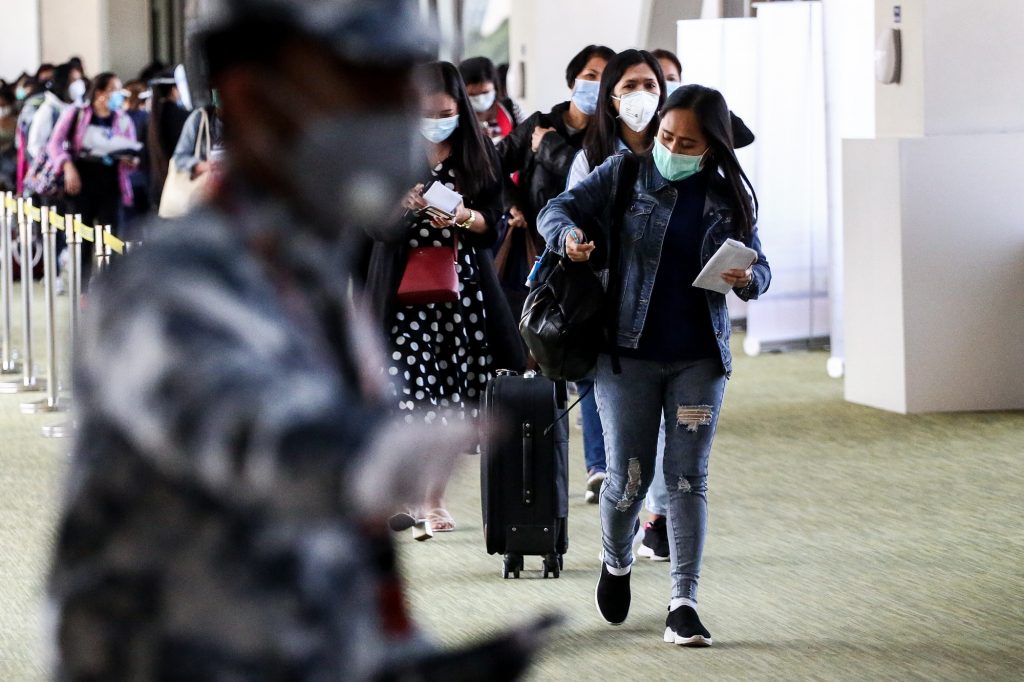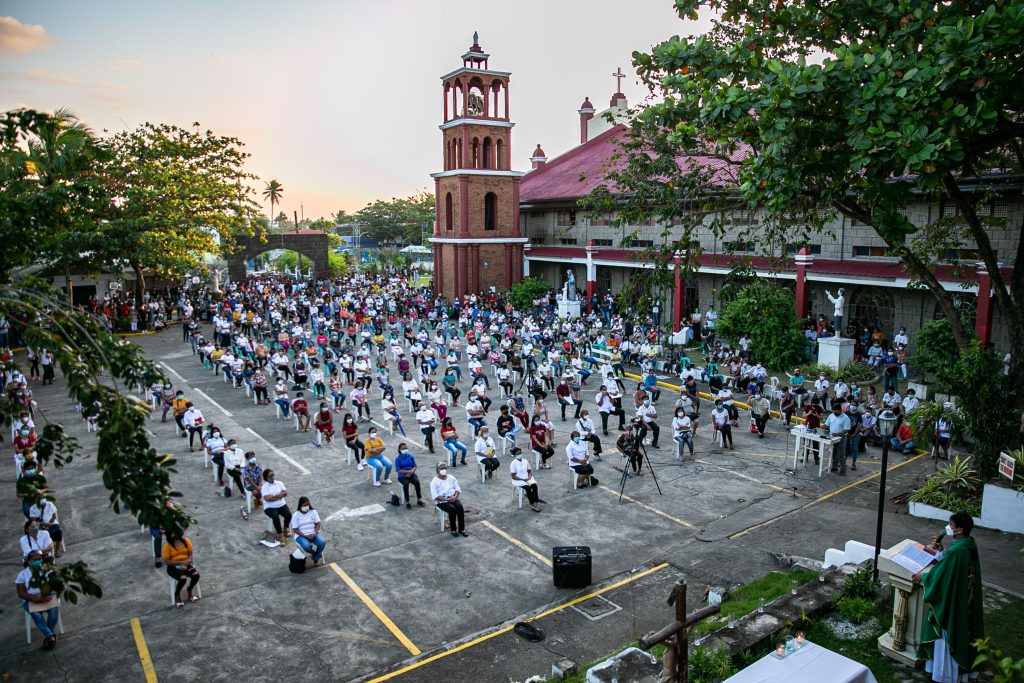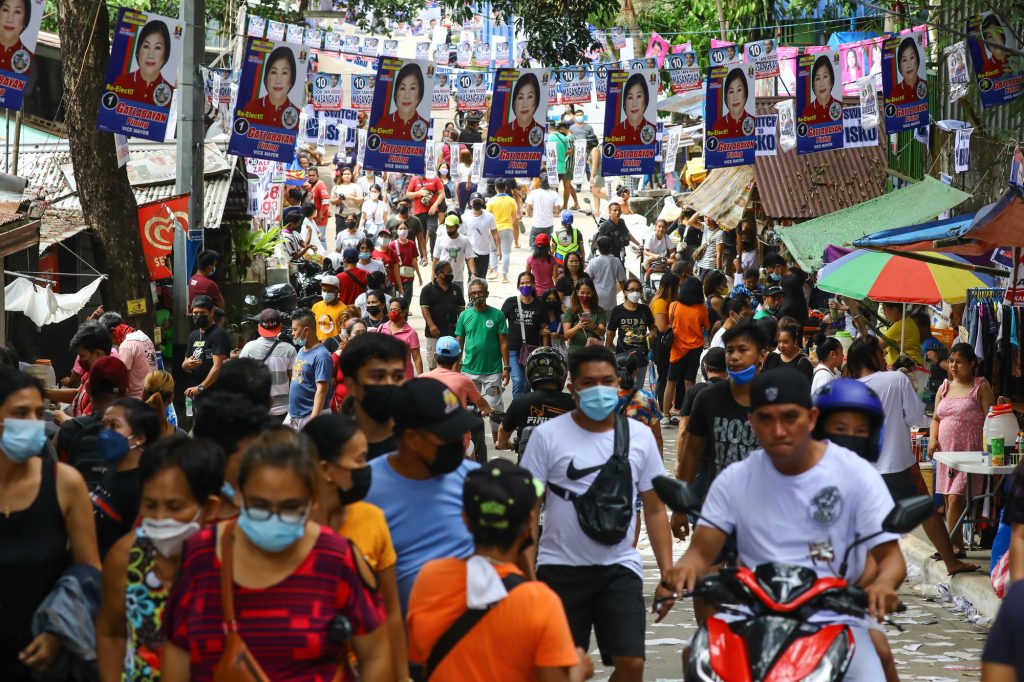An assessment of the 2022 national elections, the establishment of a “personal prelature” for migrant workers, and the possibility of holding a Third Plenary Council of the Philippines are among the agenda of this week’s bi-annual meeting of the Catholic Bishops’ Conference of the Philippines (CBCP).
The national synodal consultation of Church leaders, which will start on Monday, July 4, in Tagaytay City, will precede the CBCP meeting.
More than 200 bishops, priests, and lay representatives of the diocesan synodal process will take part in the consultation that will last until July 7.
At the bishops’ meeting, which will formally open on July 9, the establishment of a prelature of migrants will top the agenda.
“The objective is to really address the pastoral needs of our [overseas Filipino workers],” said Bishop Pablo Virgilio David of Kalookan, CBCP president, in an interview over Church-run Radio Veritas 846.
He said the “Personal Prelature for Filipino Migrants” will ensure that the spiritual welfare and needs of Filipinos and Filipino communities abroad will not be neglected.
Bishop David said the the work of the Episcopal Commission on Migrants and Itinerant Peoples has been “overstretched.”
“At the end of the day, there is a need for a full time bishop, full time priest, laity, and religious who will help,” said Bishop David.
The prelate, however, said the establishment of the prelature would take a lot of time “because it has to be endorsed by the Vatican.”
The Holy See has to set up the prelature with the approval of the local conference of bishops.


A personal prelature is a church jurisdiction without geographical boundaries designed to carry out particular pastoral initiatives.
As of 2019, the country’s foreign affairs estimates that there are over 10 million Filipinos overseas, 3 million of which are temporary migrants of overseas Filipino workers.
“This is unique… if approved it will be a first in the whole Church,” said Msgr. Bernardo Pantin, secretary general of the CBCP.
Discussion on the matter started in January 2020 when a Filipino priest serving in the U.S. Diocese of San Diego discussed with the CBCP about the necessity of such a prelature.
Fr. Agustin Opalalic said the idea was based on a dissertation, which he wrote during his canon law studies in Rome 25 yeas ago.
To further study the proposal, the bishops created an ad hoc committee composed of 4 episcopal commissions: canon law, migrants, clergy and seminaries.
“This is really to take care of Filipinos all over the world,” Father Opalalic said. “The priests will not just go to their places as guests but as their pastors.”
“If this happens, there will be Filipino priests who will be assigned to their places. This priest will be trained, formed, and oriented so that they can take care of them,” he said.
Plenary council
Also on top of the agenda of this year’s meeting is the result of a study done by the University of Santo Tomas on the situation of the Philippine Church vis-a-vis the result of consultations done in parishes and dioceses during the synodal process.
Based on the discussions, the bishops will then take up the possibility of holding a third plenary council that will address the issues raised during the synodal consultations, said Bishop David.
He said the synodal process only did “consultations with no resolutions.”
“How will you put them into action? How will you implement the issues that were raised during the consultation if we don’t sit down for a pastoral planning on a wider level,” he said.
The Second Plenary Council of the Philippines, or PCP II, was held in Manila from January 20, 1991, to February 17, 1991. It aimed to change the ways of the Church in the Philippines from the Second Vatican Council.


Synodal process
In May last year, Pope Francis declared that the 2023 Synod of Bishops begin with widespread consultation among laypeople that will go through three phases — diocesan, continental, and universal — and will carry the theme: “For a synodal church: communion, participation and mission.”
Msgr. Pantin, CBCP secretary general, said that in the parish and diocesan level, people “journey together” about their “concerns, hopes, dreams, aspirations and even their frustrations” about the Church.
He said it is “an opportunity to voice up their opinions and sentiments about the Church.”
The synodal process involved not only Catholics but also those who belong to other Churches and even those who are not active in the Church.
The result of the national consultation will be presented at the “continental phase” from September 2022 to March 2023 when bishops from various regions meet and draft a document that will be sent to Rome.
All consultations and discernment are meant to assist participants, mostly bishops, who will meet at the general assembly of the synod in the Vatican in October 2023.
Msgr. Pantin said the meeting will mainly be a presentation of reports from the metropolitan synodal consultations that were held in archdioceses throughout the country.
“And in the end, they will come up with a national synthesis, which will be submitted to the Synod Office in Rome,” he said.
The Vatican has set August 15, 2022, as the deadline for submission of national synthesis from episcopal conferences all over the world.
The process aims to assess the challenges the Church faces today and to offer an analysis of the current situation.


Assessment of May polls
Msgr. Pantin said the bishops’ conference later in the week will also “talk about and assess the 2022 elections.”
He said representatives from the Halalang Marangal Coalition and the Parish Pastoral Council for Responsible Voting will speak during the gathering.
The bishops will also talk “about their election experiences” to “know the sentiments of each other… and then looking forward, what they will do with the new administration.”
The 124th plenary assembly will mark the first face-to-face meeting of the Philippine Catholic Church leaders since the COVID-19 pandemic struck two years ago.
It will be presided by Bishop David who assumed as CBCP president in December 2021.
The CBCP is currently composed of 86 active bishops, 41 honorary members who are retired bishops, and two diocesan administrators. – with reports from CBCP News and Radio Veritas 846


